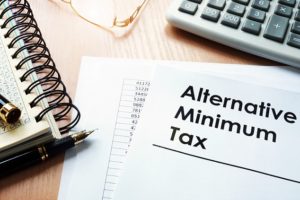What Do You Do When You Owe Taxes But Don’t Have the Funds?
For many people tax season brings the joy of a nice big refund to go out and splurge on something they’ve had your eye on for a long time. On the flip side of the equation are those people who surprisingly, or not, end up owing the IRS money. Not only do these people miss out on the extra cash influx, but they also have to come up with the funds to pay off the extra tax bill.
For some people, depending how high the bill is, they could have to pay even more than just the shortage amount. That’s because many times when people underpay they end up owing penalties for the underpayment. For those who owe a lot of money, those penalties could end up being huge. In fact, the penalties can even be much higher than the shortage.
That’s why it’s always best to try to avoid owing any money to the IRS, especially if you don’t have the funds to pay it off when the tax bill comes due. So what happens to people who can’t pay their tax bill? You do have a few options.
In some cases, it might be a good idea to take out a loan or a line of credit in order to pay off the bill. Of course, you will then be responsible to pay off the loan, so use caution. Another option is to apply for an extension with the IRS. This could buy you a little time to come up with the needed funds. If you need even more time then try applying for a hardship extension, which could give you up to six months to pay it off. You could also ask the IRS for permission to set up a payment plan to pay off the debt in installments.
Whichever path you decide to take, make sure you do something. Don’t ignore the problem or it will only get worse. The penalties will likely increase the longer you wait and the IRS could eventually take other measures or even press charges. So the bottom line is: do something.
Are You Prepared to Avoid the AMT Under the New Tax Law?
Are You Prepared to Avoid the AMT Under the New Tax Law? The Tax Cuts and Jobs Act (TCJA) changed a lot of things. But unfortunately, it didn’t eliminate the dreaded Alternative Minimum Tax (AMT). The TCJA did change some of the AMT rules and it reduced the odds that you will qualify for the…
Ready for Taxes After Marriage? Here’s What You Need to Know
Ready for Taxes After Marriage? Here’s What You Need to Know The 2018 tax season is officially over. Most Americans are happy to have their tax returns in the rearview mirror. After all, nobody really enjoys doing taxes. Why is that? For the most part, it’s because doing taxes is such a complicated, frustrating experience…
Are Millennials Changing How We See Leadership?
Are Millennials Changing How We See Leadership? Within just a few years from now, Millennials will actually become the largest employee demographic in the workforce. That means ready or not, Millennials are coming to an office near you. It also means they will soon be taking on more leadership roles. In fact, they have already…
Tips for Avoiding Wire Fraud in Your Next Real Estate Transaction
Tips for Avoiding Wire Fraud in Your Next Real Estate Transaction It is a buyer’s worst nightmare, and it could happen to almost anyone. The wire over a significant amount of money to an account as part of settlement on a real estate transaction. Hours or perhaps a day or two later, they realize that…




